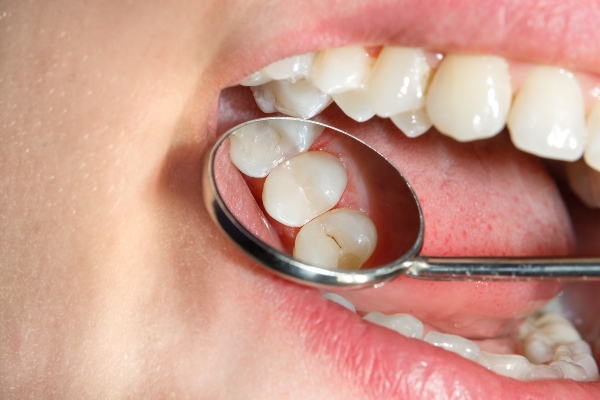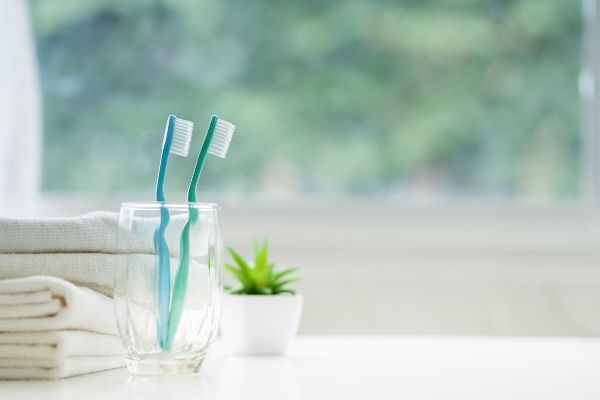A Pediatric Dentistry Office Answers Questions About Baby Teeth and Baby Bottles

Babies get most of the nutrition they need from milk during their first year of life. Even when solid foods are introduced, milk still plays a vital role in the sustenance and overall development of young children. While many families use bottles to feed their babies, some may use them improperly or for too long, ultimately leading to preventable complications. Pediatric dentistry recommendations about using baby bottles can help parents nourish their young children without causing unnecessary dental and health risks.
Common questions about baby bottle use
Whether you are a first-time parent or raising multiple kids, it is important to know the facts, research, and current recommended practices for baby bottle use during infancy and early childhood.
Is it safe for babies to drink from a bottle?
Yes, it is safe and often recommended for babies to use bottles with proper supervision. However, there are certain practices that should be avoided:
- Putting a baby down to sleep with a bottle
- Propping a bottle up for a baby who cannot hold or manipulate it rather than holding it for them
- Failing to properly clean and disinfect a bottle and its components after use
- Putting anything other than plain milk (or formula) in a bottle
- Microwaving milk in a bottle
- Allowing a baby to carry around a bottle throughout the day
- Leaving a baby unattended with a bottle
These bad habits can increase the risks of tooth decay, developmental issues, injury, illness, and more.
What are the risks of using a baby bottle for too long?
Using a baby bottle into toddlerhood can be unwise for numerous reasons. According to Maternal and Child Nutrition, along with many other studies, prolonged bottle use is associated with an increased risk for childhood obesity. It can also cause developmental issues with the teeth and facial bones, leading to alignment and speech problems. Using a bottle for too long can also increase the risks of tooth decay because the sugars in milk are consistently passing over the teeth, leading to more enamel erosion.
When should a child stop using a bottle?
The guidance for bottle use may vary from child to child based on their health and development. In general, pediatric dentistry professionals suggest parents start to transition to a cup between six and nine months of age so that a child is bottle-free between the ages of 12 and 14 months.
Tips for using a baby bottle properly
While your child is using a bottle during the first year of life, stick to a feeding schedule. Only offer the bottle at mealtime or when your baby is hungry and put it away when your child is finished. Try to use other methods for comfort, such as offering a special toy, stuffed, animal, or blanket. Wipe your child's gums with a clean, soft washcloth in the early months. Once your child's baby teeth erupt, brush them twice a day, including after the final feeding at night before bed.
Do not offer other beverages in a bottle, especially sweetened ones. Bottle drinking keeps the sugars and acids on mouth surfaces for longer periods of time. Also, clean bottle nipples and parts thoroughly after each use. Otherwise, you could introduce more bacteria into the mouth, increasing the chances of developing tooth decay and illness.
Sterilization is sometimes recommended to help reduce the growth and spread of pathogens on bottle surfaces. It may be prudent to sterilize your child's bottles if:
- They are younger than three months of age
- Your baby has recently been sick
- You are using borrowed or used bottles
- Your child has a compromised immune system
- You do not have access to safe, clean tap water
There are many ways to sterilize bottle parts and components. You can purchase devices made for this exact purpose, such as microwavable sterilizing trays or bags. You can also sterilize the items by doing so in boiling water. Be sure to check the specific product's manufacturing to ensure safe and proper technique.
Conclusion
With the right approach, baby bottles can be an essential tool in caring for your child. However, it is important to stop allowing your child to use a bottle at the right age to prevent unnecessary dental damage and developmental delay. Begin transitioning your child to a cup at an early age so they are more comfortable making the switch when the time is right. Following current pediatric dentistry recommendations can help protect your child's dental and overall health.
Request an appointment here: https://www.hvkidsmiles.com or call Hudson Valley Pediatric Dentistry at (845) 363-4177 for an appointment in our Middletown office.
Check out what others are saying about our dental services on Yelp: Pediatric Dentist in Middletown, NY.
Recent Posts
Cavity treatment for kids is essential for a child’s oral health. Dental decay can cause discomfort, causing the child to lose focus at school. It can even result in low self-esteem and malnutrition. Treating cavities can improve your child’s general health. Here are effective techniques for cavity treatment for kids.There are cases when fillings cannot…
Parents play a crucial role in their children's tooth care by ensuring their children get started on the right path to optimal dental health. This involves overseeing children's tooth care at home while also helping them develop healthy dental habits and ensuring they see a pediatric dentist regularly.Parents will need to keep their child's mouth…
Just like adults, children need preventive dental care — that is where pediatric dentistry comes in. Many parents believe that their child's teeth are healthy simply because their child is young. The truth is that oral health issues are as prevalent in kids as much as adults. Since they love sugary treats, the risk of…
Children have a great deal of growing and changing to do before they come into their adult smile, which often means parents fail to consider cosmetic dentistry for children as an option. However, cosmetic dental services can make a big difference for kids at this vulnerable age, when they may be prone to bullying and…


